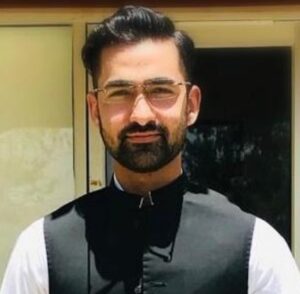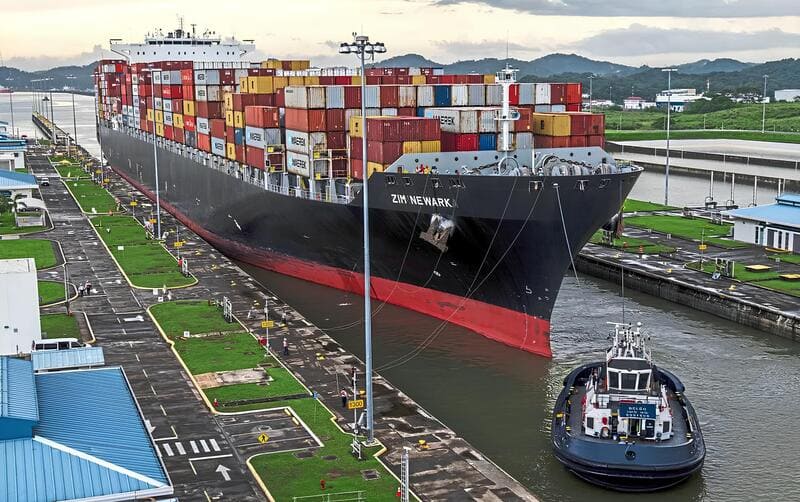By Muhammad Faisal
At the beginning of March 2025, BlackRock, a leading American multinational investment company, had agreed to a $22.8 billion deal to take majority stakes in ports on both sides of the Panama Canal, removing them from the control of a Hong Kong-based company.

As of today, May 30, 2025, BlackRock’s acquisition of 80% of Hutchison Ports and 90% of Panama Ports is still pending completion. The transaction remains subject to approval by the Panamanian authorities and is currently on hold following objections raised by Chinese stakeholders. So the transaction has not yet reached a conclusive stage.
However, even though the acquisition not yet been finalized, it represents a significant case study for examining:
1. The strategic importance of the Panama Canal in global trade and power projection;
2. The increasingly important role of private financial entities such as BlackRock in the “Great Game” of global geopolitics.
Indeed, non-state actors (particularly large financial institutions) are becoming key players in geopolitical competition, rivaling the traditional influence of states. The boundaries between economic power and strategic control in today’s multipolar world are becoming increasingly blurred. So, even the mere announcement of such an agreement by BlackRock, followed by the reactions of the United States, Panama, and China, reflects the dynamic geopolitical changes in the ownership of global infrastructure and the global balance of influence.
The Panama Canal supports around 6% of world trade, and over 70% of its commercial activity involves American companies. Since the 1990s, Hong Kong-based CK Hutchison Holdings has controlled these important terminals, reflecting China’s influence in Latin America. Experts say this is not simply a global investment by BlackRock, but a game-changing move for the company and the US, at a time when China is becoming an increasingly important concern.
The decision to acquire the ports of Balboa and Cristóbal, despite strong opposition from Beijing, came after two major political changes at BlackRock. First, last January, BlackRock withdrew from the Net Zero Asset Managers Initiative, as a way to step back from investing in climate change strategies. According to Laurence “Larry” Fink, CEO at BlackRock, the company started to walk away from its Environmental, Social, and Governance (ESG) approach for two main reasons: an increase in politics surrounding climate finance, and pressure from shareholders. Second, at the start of February, BlackRock stopped endorsing the Diversity, Equality, and Inclusion (DEI) programs, instead supporting a culture that rewards performance results, dismissing social and political criteria. Their ideology, in fact, is almost the same as the “America First” policy of Trump, leaning away from global cooperation to put more emphasis on national interests and practical economics.
Just as he pulled out of the Paris Climate Agreement in 2017, Trump showed the same unease with multilateral pursuits that might trim U.S. competitive edge. Declining from ESG and DEI, as BlackRock is now doing, indicates that financial forces are supporting the rise of nation-state protectionism in the economy. Once America’s ideas shifted, acquiring the Panama Canal ports seemed to be more about securing influence than about making a regular investment.
Over the past two decades, London’s ports have seen their terminals improved thanks to substantial investments from China through CK Hutchison. During that period, CK Hutchison spent over $1.69 billion to upgrade the network, far exceeding the amount stipulated in the concession agreement. Beijing has increased its investment in Panama’s infrastructure to $669 million since establishing relations with the Central American country in 2017.
If we look at it strategically, such a deal shows private companies are trying to impact world affairs. Even though it is not a public body, BlackRock uses its strong influence in the West’s markets to sound out and resolve economic and political issues as if it were a state. The struggle between countries on the global stage has caused businesses to use infrastructure, logistics, and supply chain management along with regular military methods as tools of influence. For this reason, countries are increasing their attention to growing ports, railway systems, semiconductor factories and undersea communication lines, along with expanding their terrain-based resources
The Panama Canal is important for trade, but it is also a key place for controlling flows of goods. That’s why China focusing on business in both directions of the canal is a key aspect of the Belt and Road Initiative. BlackRock appearing in Latin America destabilized China’s power in the region, which had been built over the past two decades on soft power.
The consequences for China are very serious. Its plan to connect countries around the world via routes that avoid US influence is losing momentum. Furthermore, these disruptions may undermine Beijing’s plan to secure control of important seaports, such as Gwadar, Djibouti, Piraeus, and Panama, in order to safeguard its maritime routes. The loss of control over the entry and exit points of the Panama Canal weakens China’s presence and influence in Western Hemisphere trade.
Essentially, BlackRock’s acquisition of Panamanian ports is of fundamental importance in the strategic competition between the United States and China. As China finances large projects through the Belt and Road Initiative, it becomes clear that the United States is using firms like BlackRock to spread its power around the world. The firm’s shift away from ESG and DEI, to focus more on benefits for America, comes because Wall Street and Washington are now working much closer on foreign policy. China’s hold over the region has decreased after losing the control on the waterway, proving successful economic tactics, not military ones, have prevailed. So Panama reveals that the main battleground between big powers is now over businesses and valuable resources, rather than over military might.
Author: Muhammad Faisal – Research Intern at Balochistan Think Tank Network (BTTN) Quetta, Pakistan.
(The views expressed in this article belong only to the author and do not necessarily reflect the editorial policy or views of World Geostrategic Insights).







